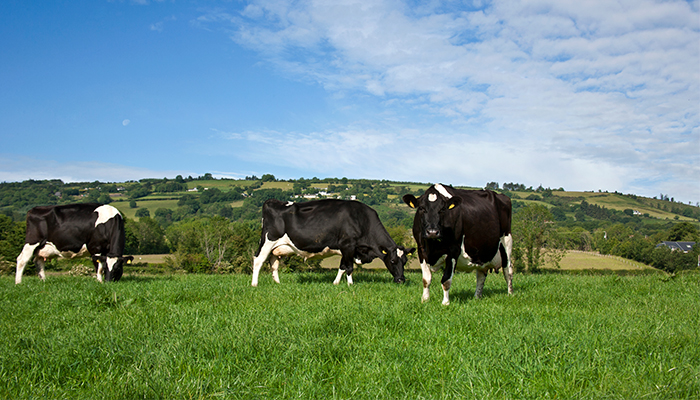11 January 2023
Irish products ‘RumenGlas’ and ‘GasAbate’ generating promising results in reducing methane emissions

Mitigating methane emissions is recognised as the quickest way to slow down the impact of climate change, with Ireland committing to reduce agri GHG emissions by 25% by 2030.
Agriculture is responsible for 37% of Ireland’s Greenhouse Gas (GHG) emissions with methane accounting for 68% of all Irish Agri GHGs. In Ireland, approximately 93% of methane emissions are derived from the digestion of feed in cattle and sheep and gaseous emissions from stored slurry. GlasPort Bio, a Galway-based company, have developed solutions to achieve this. ‘GasAbate’, an additive added to stored slurry, can reduce methane emissions from slurry by greater than 80%, while also reducing other harmful gas emissions such as ammonia and hydrogen sulphide. Treated slurry becomes a more effective fertiliser allowing farmers to reduce spend on chemical fertiliser, and greatly improves biogas yields when used in anaerobic digestion. They have also developed ‘RumenGlas’, a feed additive to greatly reduce methane emissions from livestock. In trials conducted in Teagasc Grange, preliminary results suggest methane emissions reductions of 30% while allowing dramatic increases in animal performance – with finishing cattle receiving RumenGlas having a 19% increase in daily weight gain. A benefit to this feed additive is that it can be delivered in a pelleted concentrate formulation.
Other strategies to reduce methane emissions
- Reducing slaughter age
- improved grassland management
- dietary supplementation with methane supressing compounds
- breeding of low methane emitting animals
Paul Smith, Teagasc Grange spoke to attendees at BEEF2022 about strategies of reduce methane emissions from Irish beef production
